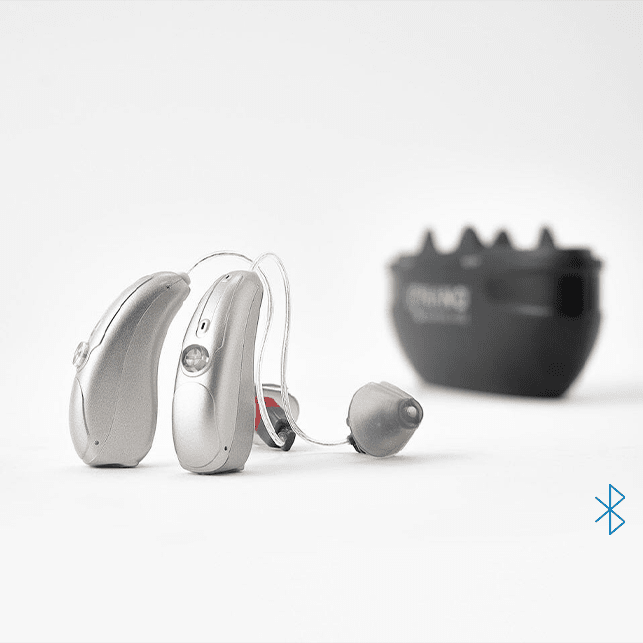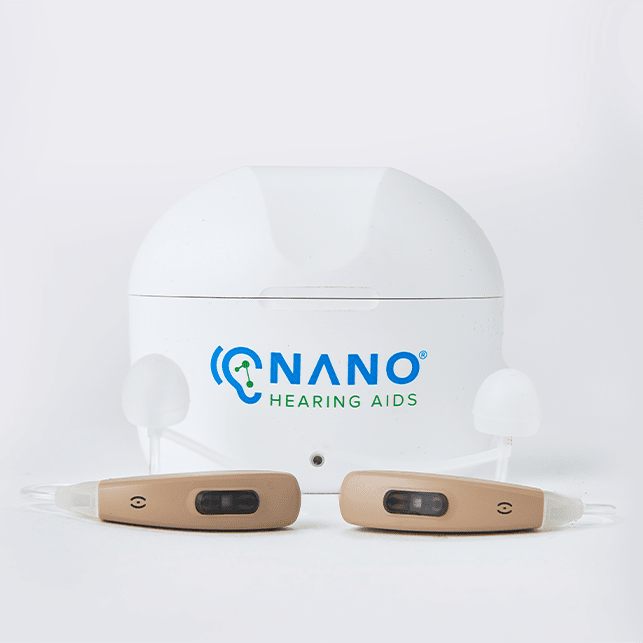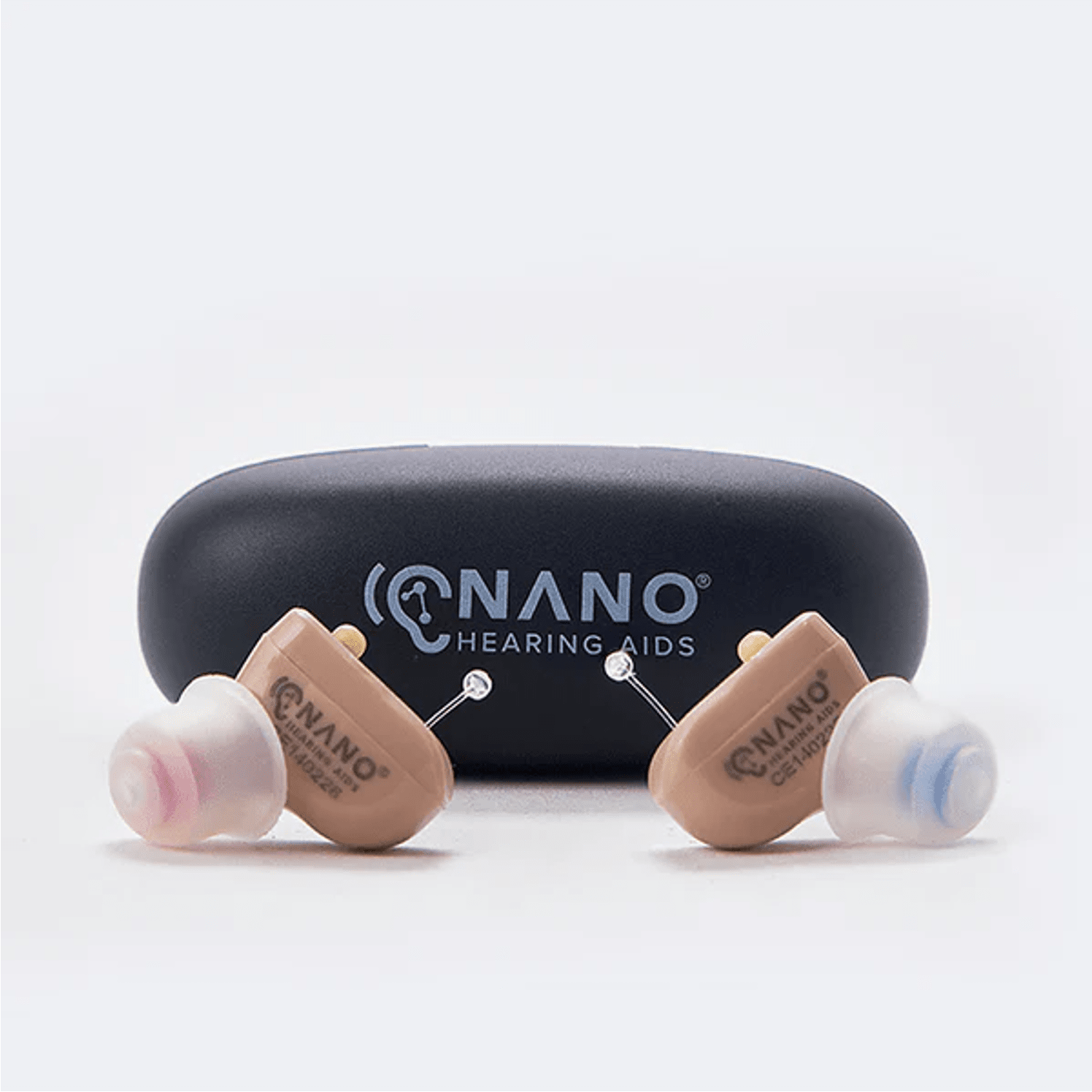Key Takeaways
- Inform hospital staff about your hearing needs.
- Always store your hearing aids in a designated container when not in use.
- Use a hearing aid case with a label to prevent loss or mix-ups.
- Consider additional assistive listening devices in conjunction with your hearing aids.
Tips to Hear Better in Hospital
- Inform Your Medical Team - Make sure your doctors and nurses know you wear hearing aids so they can communicate effectively with you.
- Label Your Hearing Aid Case - Use a label with your name on your hearing aid case to avoid any mix-ups.
- Charger - Always have your charger on hand in case you need to charge your hearing aids. Or bring extra batteries if your hearing aids have disposable batteries.
- Proper Storage - When not in use, keep your hearing aids in a dry, safe place, like a bedside container.
- Avoid Moisture - Protect your hearing aids from moisture by using a dehumidifier or drying kit - this is especially important in a hospital environment.
- Backup Hearing Aids - If possible, bring a backup pair of hearing aids in case your primary pair fails.
- Regular Cleaning - Clean your hearing aids regularly to prevent wax and debris from affecting the sound quality.
- Visual Alerts - Request a room with visual alert systems for alarms if you're unable to wear your hearing aids at all times.
- Assistive Listening Devices - Ask if the hospital has assistive listening devices available for patient use.
- Volume Control - Be familiar with how to adjust the volume on your hearing aids for different hospital environments.
- Communication Card - Carry a card that indicates you wear hearing aids and includes instructions on how you communicate best.
- Insurance Information - Keep a copy of your hearing aid insurance information with you in case of loss or damage.
- Post-Surgery Plan - If you're undergoing surgery, have a plan for where your hearing aids will be stored during the operation.
- Recovery Room Readiness - Ensure your hearing aids are readily available and functioning for when you wake up post-surgery.
- Emergency Contact - Have an emergency contact who is familiar with your hearing needs and can assist if necessary.
- Staff Education - Educate hospital staff on how to handle and care for your hearing aids if you're unable to do so yourself.
- Rest Periods - Take breaks from wearing your hearing aids to prevent ear fatigue, especially during longer hospital stays.
- Advocate for Yourself - Be assertive about your hearing needs and ensure you're included in all conversations regarding your care.
NANO Hearing Aids are FDA-registered, Class I devices. Our OTC hearing aids are designed for individuals over 18 years of age with perceived mild to moderate hearing impairment. With prices starting at just $297, they offer a viable solution for those looking to improve their hearing without breaking the bank.
How Nano OTC Hearing Aid Helps You Hear Better in Hospital Environments
Nano Audacity® RIC OTC hearing aids with Bluetooth streaming
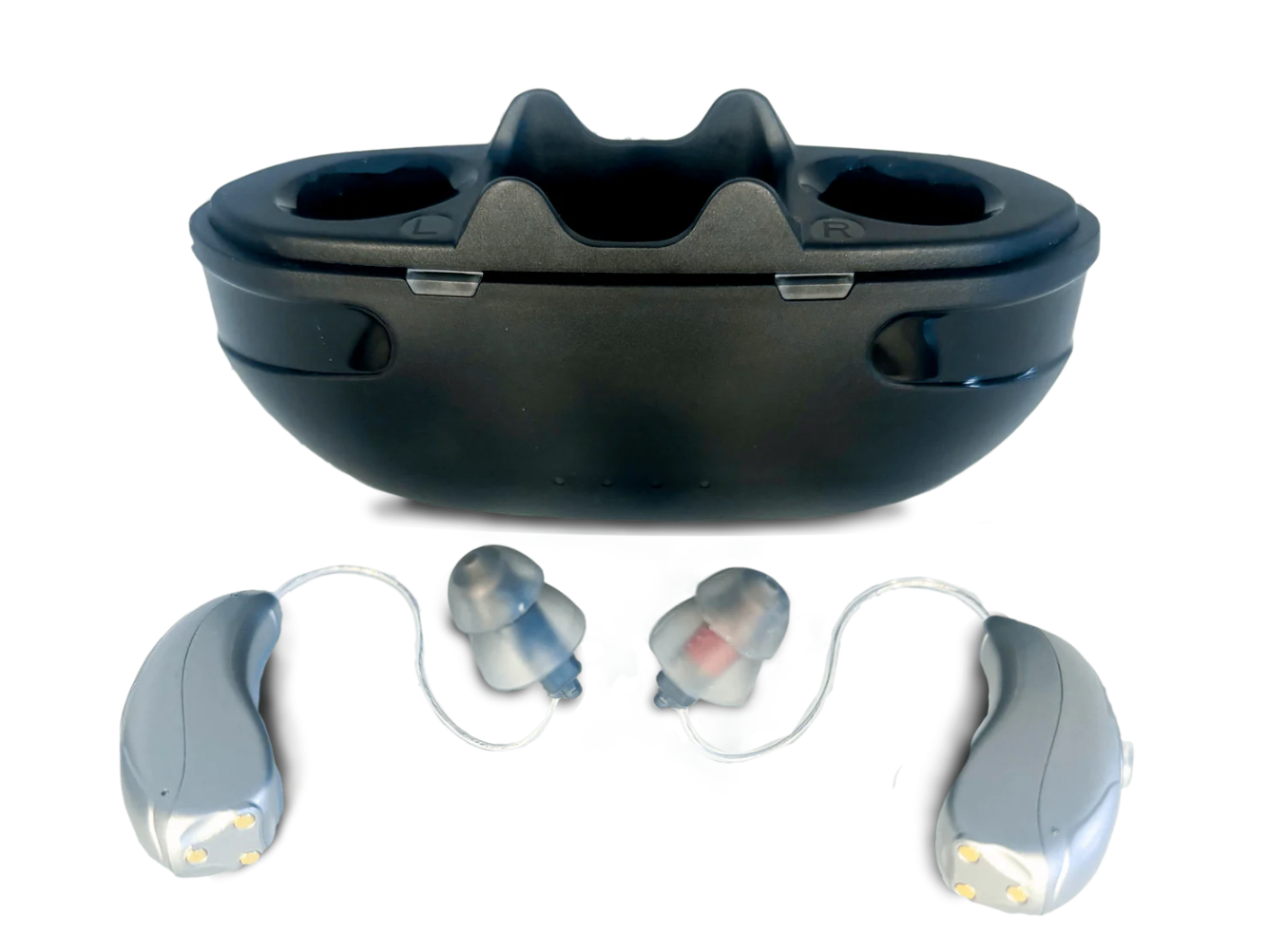
Our OTC hearing aids are known for their affordability, discreet design, and advanced technology. They're designed to amplify speech while reducing background noise, which is particularly beneficial in busy hospital settings. Here are some features that make Nano OTC hearing aids suitable for hospital environments:
- Noise Reduction: Filters out hospital noises, enhancing focus on conversations with medical staff.
- Rechargeable Models: Saves you the hassle of battery changes, ensuring hearing aids are always ready to use.
- Wireless Connectivity: Allows direct connection to devices for easier communication and entertainment.
- Discreet Design: Boosts comfort and reduces self-consciousness.
- User-friendly Controls: Enables easy adjustments, ensures comfort to adapt to changing noise levels in the hospital environment.
Choosing the right model for your hospital stay will depend on your specific hearing needs and the nature of your visit. For instance, if you anticipate a lot of rest and recovery time, a model with long battery life and comfort for extended wear might be your best bet.
Using Nano OTC Hearing Aids with Other Assistive Listening Devices
In the hospital, you may encounter situations where your Nano OTC hearing aids need a little extra help. This is where assistive listening devices (ALDs) come in. ALDs can include devices like personal amplifiers, which you can use during consultations to better hear your doctor.
Some hospitals also have ALD systems integrated into their infrastructure, like infrared systems for watching TV without disturbing others. Don't hesitate to ask if these are available and how you can connect your hearing aids to them.
It's also worth noting that many modern hearing aids are equipped with telecoils. Telecoils can pick up the signal from loop systems, which are often found in public places, including hospitals. By switching your hearing aids to the telecoil setting, you can tap into these systems and hear more clearly without background noise.
Ensuring Auditory Clarity During Your Hospital Stay
Nano CIC Digital 4 - Black OTC hearing aids
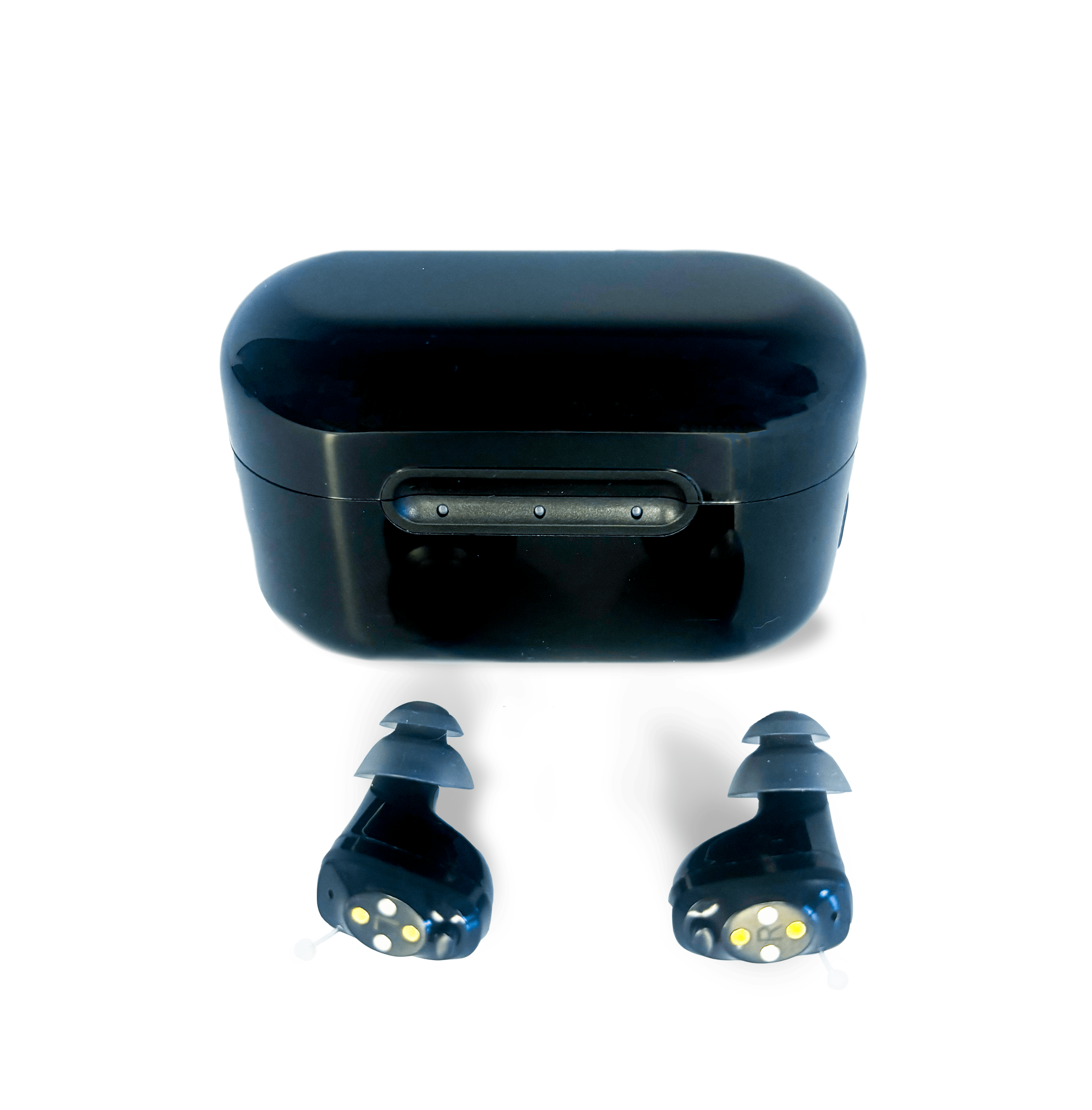
By following these tips and taking good care of your Nano OTC hearing aids, you can ensure that you'll hear better during your hospital stay. A little preparation goes a long way, from labeling your case and informing the hospital staff about your hearing needs to maintaining your hearing aids and making use of assistive listening devices.
Take charge of your auditory health by being proactive. Ensure you have all the necessary supplies and information to manage your hearing aids effectively. This way, you can focus on your recovery and rest assured that you won't miss any important information or moments of connection with those who matter most.
If you have perceived mild to moderate hearing loss, browse our selection of affordable FDA-registered OTC hearing aids, starting at $297. If you have questions about our models and their suitability for your needs, call us at (877) 511-8809 - we can help you choose the best option!
Frequently Asked Questions (FAQ)
How can I prepare my hearing aid for a hospital stay?
To prepare your hearing aid for a hospital stay, ensure that you have a labeled case for storage, extra batteries or a charger, and a cleaning kit. Inform the hospital staff about your hearing aid use, and consider bringing a backup device if possible.
What do I do if my hearing aid isn't working properly in the hospital?
If your hearing aid isn't working properly in the hospital, first check for common issues such as dead batteries, blocked microphones, or improper settings. If the problem persists, contact the hospital's audiology department. In some cases, the hospital may have spare assistive listening devices you can use temporarily.
Are there specific hospital departments that specialize in hearing care?
Many hospitals have an audiology department that specializes in hearing care. These departments can provide support for hearing aid users, including maintenance, troubleshooting, and access to assistive listening devices. It's helpful to know where the audiology department is located and how to contact them during your stay.
How can I ensure that hospital staff are aware of my hearing needs?
To ensure hospital staff are aware of your hearing needs, inform them about your hearing aid use during admission. You can also request that a note be made in your medical chart. Carry a communication card that states you wear hearing aids and include any specific instructions for effective communication.
What steps can hospitals take to support patients with hearing impairments?
Hospitals can support patients with hearing impairments by training staff on how to communicate with hearing aid users, providing visual alert systems, and ensuring access to assistive listening devices.

